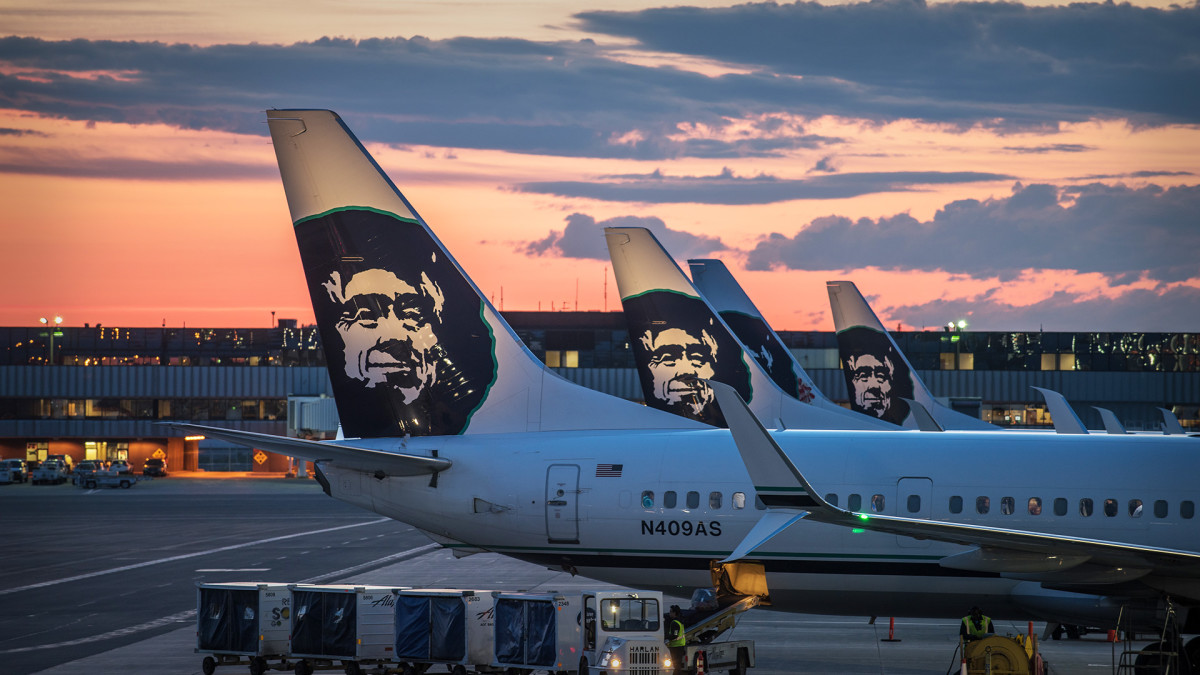
Few airports have been through as much in recent months as Seattle-Tacoma International (SEA).
At the end of August a cyberattack that targeted a number of the airport's computer and processing systems sowed chaos on everything from check-in to baggage distribution.
Alaska Airlines (ALK) staff had to manually sort through thousands of suitcases when the system automatically redirecting them to the right baggage carousels suddenly stopped working.
Related: Hackers demand insane ransom from SeaTac Airport
'We expect residual impacts to our operation': Alaska Airlines
While immediate service was soon restored, hackers seized control of key airport data and are currently demanding 100 bitcoin (valued at some $6 million) to take it off the dark web. Airport authorities said that giving in to such demands would not make it "a good steward of taxpayer dollars."
More on travel:
- Another National Park just made it more difficult for you to visit
- Another airline strands passengers as it files bankruptcy
- The Airbnb/hotel debate is getting very tiresome
Though not the result of a cyberattack, Alaska Airlines had to ask for a ground stop from the Federal Aviation Administration at 7:45 p.m. local time on Sept. 22 over an "IT issue that caused significant disruption to our operation."
"We also requested a ground stop at SEA so we could clear the aircraft congestion on the ground," the airline said in a statement to news outlets. "The issue has been resolved, but we expect residual impacts to our operation. We sincerely apologize to our guests who are impacted and are working to get all our guests to their destinations."
Related: Get the best cruise tips, deals, and news on the ships from our expert cruiser
It wasn't a cyberattack but issues at SeaTac airport continue
The airline said that the breakdown came from a "certificate issue that impacted multiple systems" rather than the nefarious activity of bad actors. The document filed to the FAA initially also said that there was a 30%-60% chance the ground stop would be extended into Sept. 23 even after the issue has been resolved due to problems with restarting operations.
While the ground stop was lifted by 10 p.m. on Sept. 22, disruptions it caused continue. Flightradar24 data shows that 94% of flights scheduled to depart that night did not leave on time while the total delays reached as many as 650.
By the morning of Sept. 23, the FAA's website showed that things were largely back to normal with the average "gate hold and taxi delays lasting 15 minutes or less."
SeaTac is still navigating the effects of last month's cyberattack; the Federal Bureau of Investigation and the Transportation Security Administration are currently investigating how security systems were breached and the data were seized.
Australian cybersecurity news site Cyber Daily was one of the outlets that reported that the stolen data could include a scan of a passport belonging to a Port of Seattle program manager, airport tax forms and some airport authority representatives' personal Social Security numbers and signatures.
"We're currently reviewing the files published on the leak site, as well as others we believe were copied," SeaTac Aviation Managing Director Lance Lyttle said in a Sept. 18 meeting of the Senate Commerce, Science and Transportation Committee.
"[With] regards to paying the ransom, that was contrary to our values and we don't think it's the best use of public funds."







